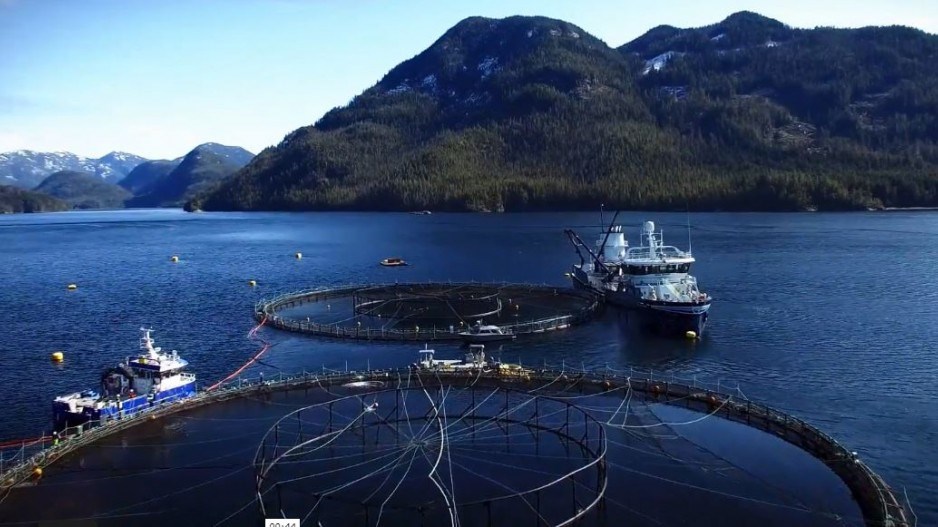First Nations opposed to salmon farming in B.C. are stepping up pressure on the federal government to live up to its promise to phase out open-net salmon farms in B.C.
At a press conference today, a number of First Nations leaders spoke about the importance of wild salmon to First Nations, both for food security and as part of their culture. They view salmon farms as at least one of the threats, if not the principal one, to wild salmon, due to concerns they spread sea lice and viruses to wild fish.
Wild salmon stocks have been in decline for about two decades now.
“Our salmon are on the verge of extinction,” said Don Svanvik, a hereditary chief and elected chief councillor of the Namgis First Nation.said.
“There are many impacts on wild salmon," he said. "The impact that we can affect the quickest and (most) efficiently and effectively is open-net finfish farms."
While there are some First Nations in B.C. that support and are involved in salmon farming, Bob Chamberlin, chairman of the First Nations Wild Salmon Alliance, said the vast majority -- 102 to be exact -- are opposed to open-net salmon farms and want them phased out.
Chamberlin said 90% of B.C.’s more than 200 First Nations rely on wild salmon for food, and have aboriginal rights to catching salmon for food, social and ceremonial purposes.
The federal minister of Fisheries and Oceans has a mandate to have a plan to phase out open-net salmon farms by 2025. Meanwhile, there are 79 federal licences that expire June 30.
First Nations who oppose salmon farming are urging the minister not to renew the licences.
Chief James Hobart of the Spuzzum First Nation said the federal government should not wait until 2025 to shut down open net salmon farms.
“I think it should be done immediately,” he said. “But I understand also that there needs to be a transition time for those nations that are compelled to have industry in open-pen salmon farms.”
Stewart Phillip, grand chief of the Union of BC Indian Chiefs, said fish farms were not just a concern for First Nations.
"This is an issue that should be of grave concern to all British Columbians," he said.
He said wild salmon may be going extinct "due to the profiteering and greed on behalf of corporations that seek to jeopardize the iconic wild salmon story in the province of British Columbia.
"Governments have committed very publicly to take the farms out of the waters and put them on the land," Phiilip said. "It's been in all of the camapign commitments, and we need that to happen.
"We need to urge them to move beyond the rhetoric...and get down to the aqctual actions of moving those farms out of the water."




